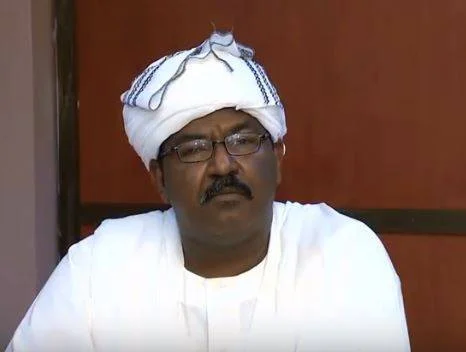The Echo of Al-Saliha…!!

By: Al-Tahir Sati
There is no sin after disbelief, and it is strange to reproach an atheist for abandoning religious practices when he does not believe in God to begin with. Likewise, when states, parties, and organizations condemn the terrorist crime of the Al-Dagalo militia in Al-Saliha, they do so knowing full well that it is, by its very nature, a terrorist militia. This crime—and the ones before it, from Wad Al-Noura to Al-Geneina—are merely expressions of its behavior, culture, and ideology.
Were it not for the double standards that dominate today’s judgments, the Al-Dagalo militia would be at the top of any list of terrorist groups. But its sponsor prevents that from happening—along with its sponsor’s agents, who cloak the militia’s crimes in flimsy political justifications under foolish labels such as “the generals’ war,” “a conflict between two parties,” and other euphemisms that barely conceal the shame of their bias.
To them, a terrorist is not someone who massacres innocents in Wad Al-Noura or Al-Saliha; not someone who buries the living in Dar Masalit; not someone who burns homes over women and children in Zamzam camp; not someone who bombs hospitals and power stations. No—according to the people of Thamud, these are not terrorists. A terrorist, to them, is simply someone who does not give you gold visas or a single dirham, or any nation and army that dares to defend its homeland.
One of the tragedies of our time is that, after the Al-Saliha massacre—as is their custom—the people of Thamud waited to see how the sponsor would react. And only when the sponsor issued a timid condemnation did they follow suit. If you examine the timelines of these public statements on their websites, you will find that their lukewarm condemnation of the militia’s crime never precedes that of the sponsor. How can a wretched soul crawling through the exiles of humiliation get ahead of its sponsor? How can a slave outrun or surpass his master?
Then there’s the statement from the Umma Party regarding the Al-Saliha massacre—a statement that reminds one of the schoolboy who, when asked whether a fox lays eggs or gives birth, answered: “It’s cunning; it might do both depending on the circumstances.” Similarly, the National Umma Party condemned the massacre and the targeting of power stations, though it is the same party once led by Borma Nasser, the founder of the Janjaweed, a member of the Sovereign Council, and custodian of looted goods in the Janjaweed government they promote from Nairobi—not from Nyala or Al-Du’ayn, where the real hunter lies in wait.
The party’s statement reads:
“This senseless war now threatens civilian lives and destroys infrastructure and services. The only way to end the bloodshed and the suffering of the people is through serious pursuit of negotiated peaceful solutions that bring the war to an end.”
Fine. But who exactly rejected the serious pursuit of peaceful solutions? Or rather, who reneged and refused to follow through on the agreed-upon path?
This is what’s truly astonishing—not just with Borma Nasser and Al-Wathiq Al-Barir, but the entire Thamud alliance. They accuse others of warmongering, yet they cannot answer three simple questions:
Who obstructed the Jeddah negotiations by refusing to implement the May 2023 agreements?
Who declined to meet with Burhan in Djibouti in December 2023 for “technical reasons” while touring Addis and Nairobi without any technical issues?
Since the siege on Army HQ was broken, and until the launch of operations to liberate El Fasher and other cities—was the army in offensive or defensive mode?
These three questions point clearly to one truth: it is the Janjaweed and the people of Thamud who ignited this war and champion it. It is not those defending their homeland and people.
The slogan “No to War” should be directed at their sponsor, the one gathering scattered tribes to fight, loot, and destroy their own country for profit. “No to War” should be directed at the sponsor who brings in strategic drones to bomb hospitals and power stations. But they will never say it—for, as the poet said:
“Said the frog a word the wise decoded with flair:
‘My mouth is full of water—can he who holds water in his mouth ever speak?'”



